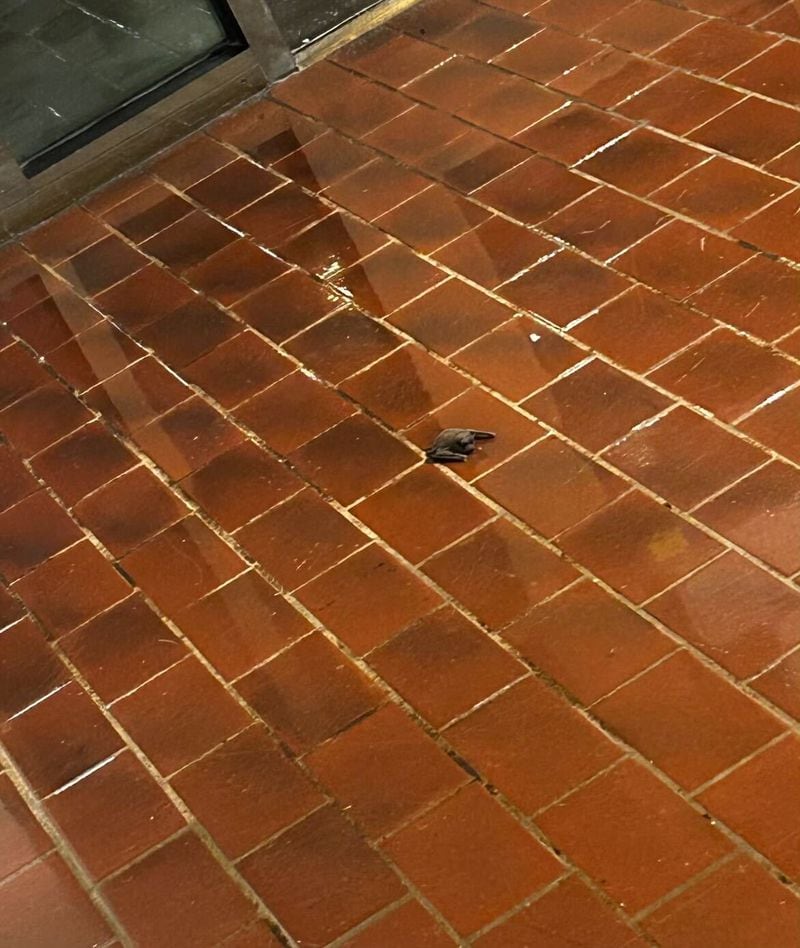The University of Georgia said workers have sealed off holes in the exterior of a residence hall infested by bats, and officials are urging students to fill out a public health survey to assess the need for rabies vaccinations.
A UGA spokesman said in an email Monday to The Atlanta Journal-Constitution that “all work has been completed on Oglethorpe House,” a nine-floor, 500-bed dormitory that’s been besieged by bats over the past week.
University officials told residents in a Friday message, provided to the AJC by UGA, that “the extraordinarily cold weather” had continued to drive bats back into the building, requiring a pest control company to make several trips.
Credit: Courtesy photo
Credit: Courtesy photo
“Bats are a protected species under state law, so they cannot be killed and must be humanely removed from a building,” the Friday message said.
The pest control company determined the bats were entering the building through spots under the roof. Crews had to find a lift tall enough to reach the site. The university sent residents an update Sunday to report that crews had blocked holes and removed points of entry.
The university plans to use a fungicide to disinfect a south stairwell where most of the bats congregated and also will clean other parts of the building using “standard cleaning procedures” that follow public health recommendations.
Still, officials cautioned students that “bats are small and good at hiding, so we may continue to find a few stragglers.”
“Please avoid stairwells for the next few days to prevent any bats that remain from making their way into student hallways,” the message said.
Students who live at Oglethorpe House and others who work there or have visited are asked to complete a bat exposure assessment survey from the Northeast Public Health District and the Georgia Department of Public Health.
The survey states that a small percentage of bats are infected with rabies, “a fatal disease that can be transmitted to people through the bite or scratch of an infected animal.”
“It is also possible, but quite rare, that people may get rabies if infectious material from a rabid animal, such as saliva, gets directly into their eyes, nose, mouth, or a fresh open wound. When appropriate, post-exposure vaccination should be initiated in a timely manner to prevent rabies,” the survey states.
Public health officials will use the survey to determine if someone is at risk because of a bat exposure and will inform anyone who needs to get a rabies vaccination. Students should not get a rabies vaccine until they or their doctor speaks to a public health official.
“The need for rabies vaccinations is urgent but not emergent, meaning it is okay to wait a few days before starting the vaccination series,” the survey states.








